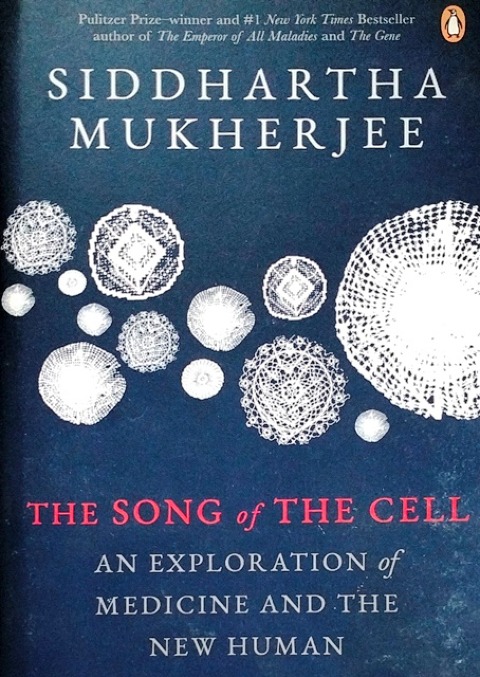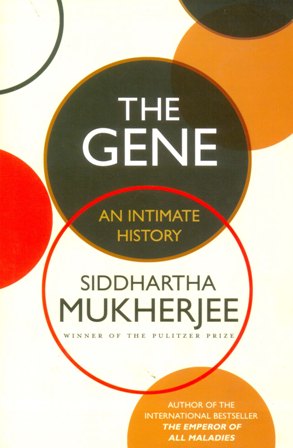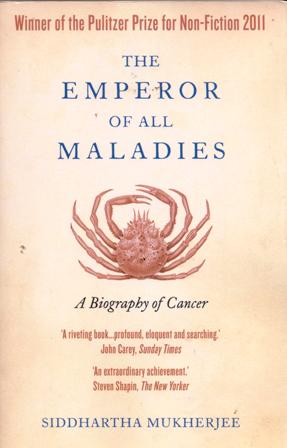-
The Song of the cell (An exploration of medicine and the new human)
From Pulitzer Prize-winning and #1 New York Times bestselling author of The Emperor of All Maladies and The Gene, The Song of The Cell is the third book in this extraordinary writer's exploration of what it means to be human-rich with Siddhartha Mukherjee's revelatory and exhilarating stories of scientists, doctors, and all the patients whose lives may be saved by their work. In the late 1600s, a distinguished English polymath, Robert Hooke, and an eccentric Dutch cloth merchant, Antonie van Leeuwenhoek, look down their handmade microscopes. What they see introduces a radical concept that sweeps through biology and medicine, touching virtually every aspect of the two sciences and altering both forever. It is the fact that complex living organisms are assemblages of tiny, self-contained, self-regulating units. Our organs, our physiology, our selves-hearts, blood, brains-are built from these compartments. Hooke christens them 'cells'. The discovery of cells-and the reframing of the human body as a cellular ecosystem-announced the birth of a new kind of medicine based on the therapeutic manipulations of cells. A hip fracture, a cardiac arrest, Alzheimer's, dementia, AIDS, pneumonia, lung cancer, kidney failure, arthritis, COVID-all could be viewed as the results of cells, or systems of cells, functioning abnormally. And all could be perceived as loci of cellular therapies. In The Song of the Cell, Mukherjee tells the story of how scientists discovered cells, began to understand them, and are now using that knowledge to create new humans. He seduces readers with writing so vivid, lucid, and suspenseful that complex science becomes thrilling. Told in six parts, laced with Mukherjee's own experience as a researcher, doctor, and prolific reader, The Song of the Cell is both panoramic and intimate-a masterpiece.
-
The Gene
Spanning the globe and several centuries, The Gene is the story of the quest to decipher the master-code that makes and defines humans, that governs our form and function. The story of the gene begins in an obscure Augustinian abbey in Moravia in 1856, where a monk stumbles on the idea of a 'unit of heredity'. It intersects with Darwin�s theory of evolution, and collides with the horrors of Nazi eugenics in the 1940s. The gene transforms post-war biology. It reorganizes our understanding of sexuality, temperament, choice and free will. Above all, this is a story driven by human ingenuity and obsessive minds�from Charles Darwin and Gregor Mendel to Francis Crick, James Watson and Rosalind Franklin, and the thousands of scientists still working to understand the code of codes. This is an epic, moving history of a scientific idea being brought to life, by the author of The Emperor of All Maladies. But woven through The Gene, like a red line, is also an intimate history�the story of Mukherjee's own family and its recurring pattern of mental illness, reminding us that genetics is vitally relevant to everyday lives. These concerns reverberate even more urgently today as we learn to 'read' and 'write' the human genome�unleashing the potential to change the fates and identities of our children. Majestic in its ambition, and unflinching in its honesty, The Gene gives us a definitive account of the fundamental unit of heredity�and a vision of both humanity�s past and future.
-
The Emperor Of All Maladies
In The Emperor of All Maladies, Siddhartha Mukherjee, doctor, researcher and award-winning science writer, examines cancer with a cellular biologist's precision, a historian's perspective, and a biographer's passion. The result is an astonishingly lucid and eloquent chronicle of a disease humans have lived with - and perished from - for more than five thousand years. The story of cancer is a story of human ingenuity, resilience and perseverance, but also of hubris, arrogance and misperception, all leveraged against a disease that, just three decades ago, was thought to be easily vanquished in an all-out 'war against cancer' . Emperor of All Maladies is about the people who have soldiered through toxic, bruising, and draining regimes to survive and to increase the store of human knowledge. Riveting and magisterial, The Emperor of All Maladies provides a fascinating glimpse into the future of cancer treatments and a brilliant new perspective on the way doctors, scientists, philosophers and lay people have observed and understood the human body for millennia.



